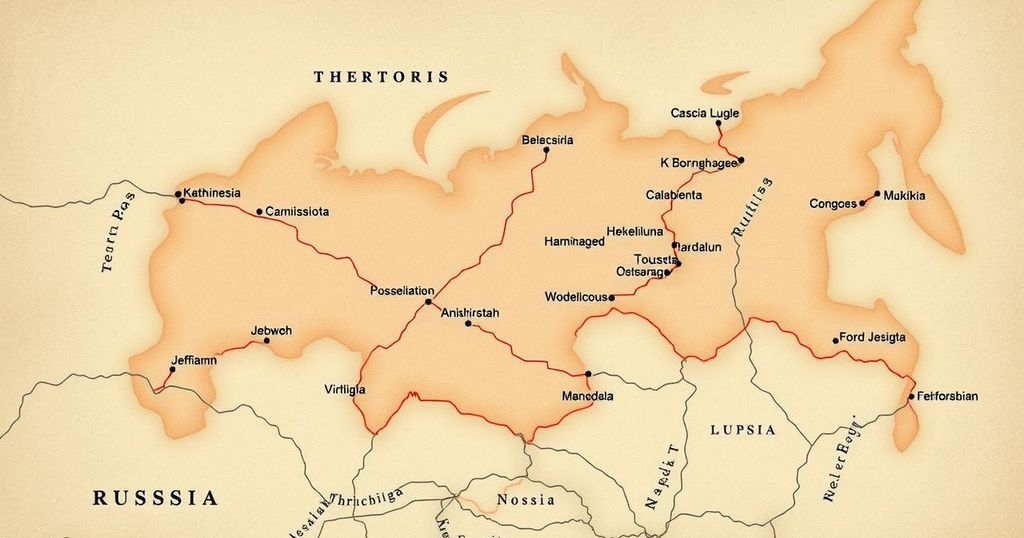Critical Review of Trump Envoy Steve Witkoff’s Ukraine Negotiation Remarks

Steve Witkoff, a Trump foreign policy envoy, faces backlash for confusion over Russian-occupied Ukrainian territories and questionable statements on referendums. Critics worry about his knowledge and neutrality, while his comments on U.S.-Iran relations reveal a lack of urgency. Overall, this incident highlights concerns regarding the administration’s diplomatic competencies in complex foreign negotiations.
Current criticism surrounds Steve Witkoff, a foreign policy envoy under Donald Trump, for his apparent lack of knowledge regarding key Ukrainian territories involved in negotiations with Russia. During a television appearance, he struggled to name the Russian-occupied regions, mistakenly listing Crimea as part of eastern Ukraine instead of recognizing it as a historically seized area by Russia in 2014. His inability to remember names prompted skepticism about the Trump administration’s capacity in handling Ukraine-Russia discussions.
Critics have noted Witkoff’s misleading claims about referendums held in the occupied territories, which he described as legitimate expressions of the local populations’ desire for Russian governance. These referendums, carried out under contentious circumstances post-invasion, have faced widespread condemnation as fraudulent. One critic highlighted concerns about Witkoff’s alignment with Russian viewpoints, questioning his neutrality in the negotiations due to his statements that mimic Kremlin narratives.
Witkoff, a Bronx-born real estate tycoon with no diplomatic background, has ties with Trump dating back to their real estate ventures. He has been mainly focused on his role as a Middle East envoy, where he previously helped negotiate a ceasefire between Israel and Hamas while also making two trips to Moscow for ceasefire discussions concerning Ukraine. Critics have remarked on the administration’s often simplistic approach to diplomacy, akin to real estate transactions.
Additionally, Witkoff’s comments about the Ukrainian leadership’s supposed agreement to conduct presidential elections during wartime have raised eyebrows, given Ukraine’s assertion that such elections are neither feasible nor legal under current conditions. He referred to Trump’s amicable rapport with Putin, mentioning a church prayer for Trump post-assassination attempt, alongside a commissioned portrait from a Russian artist as a formal gift.
Finally, addressing potential US military actions against Iran, Witkoff downplayed the severity, indicating that a letter from Trump to Iran’s supreme leader was one of peace rather than aggression. He stressed the importance of diplomatic dialogue over military action, advocating for verification measures regarding Iran’s nuclear endeavors to prevent weaponization concerns.
In summary, Steve Witkoff’s unfamiliarity with crucial Ukrainian territories and his statements regarding referendums have raised significant concerns about the Trump administration’s competence in foreign policy, particularly in dealing with Russia. Critics argue his alignment with Kremlin narratives undermines his role as a neutral envoy. Additionally, misunderstandings regarding Ukraine’s political situation and downplaying military rhetoric towards Iran reflect broader issues within the administration’s approach to diplomacy, emphasizing the need for informed and nuanced engagement in international relations.
Original Source: www.telegraph.co.uk







